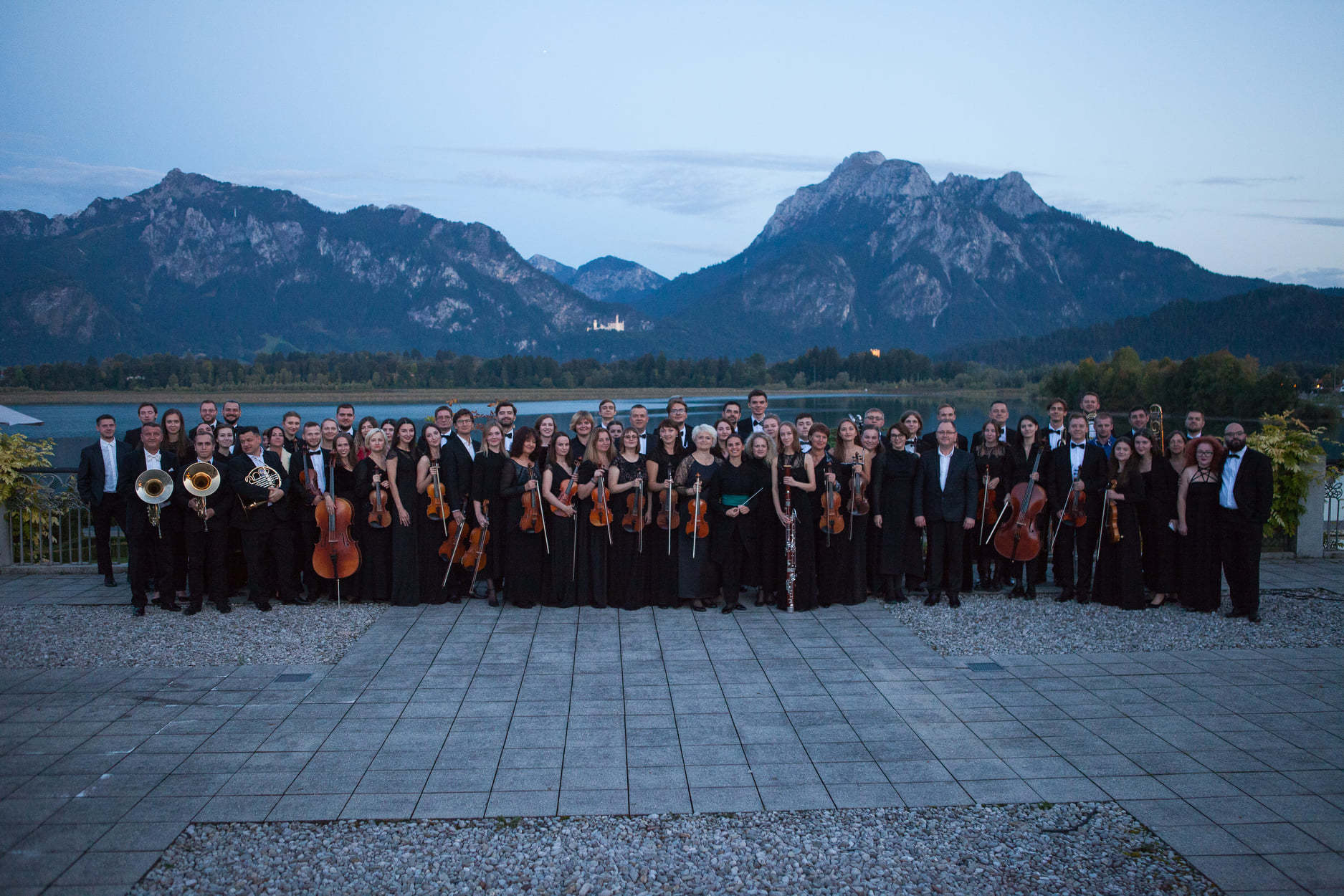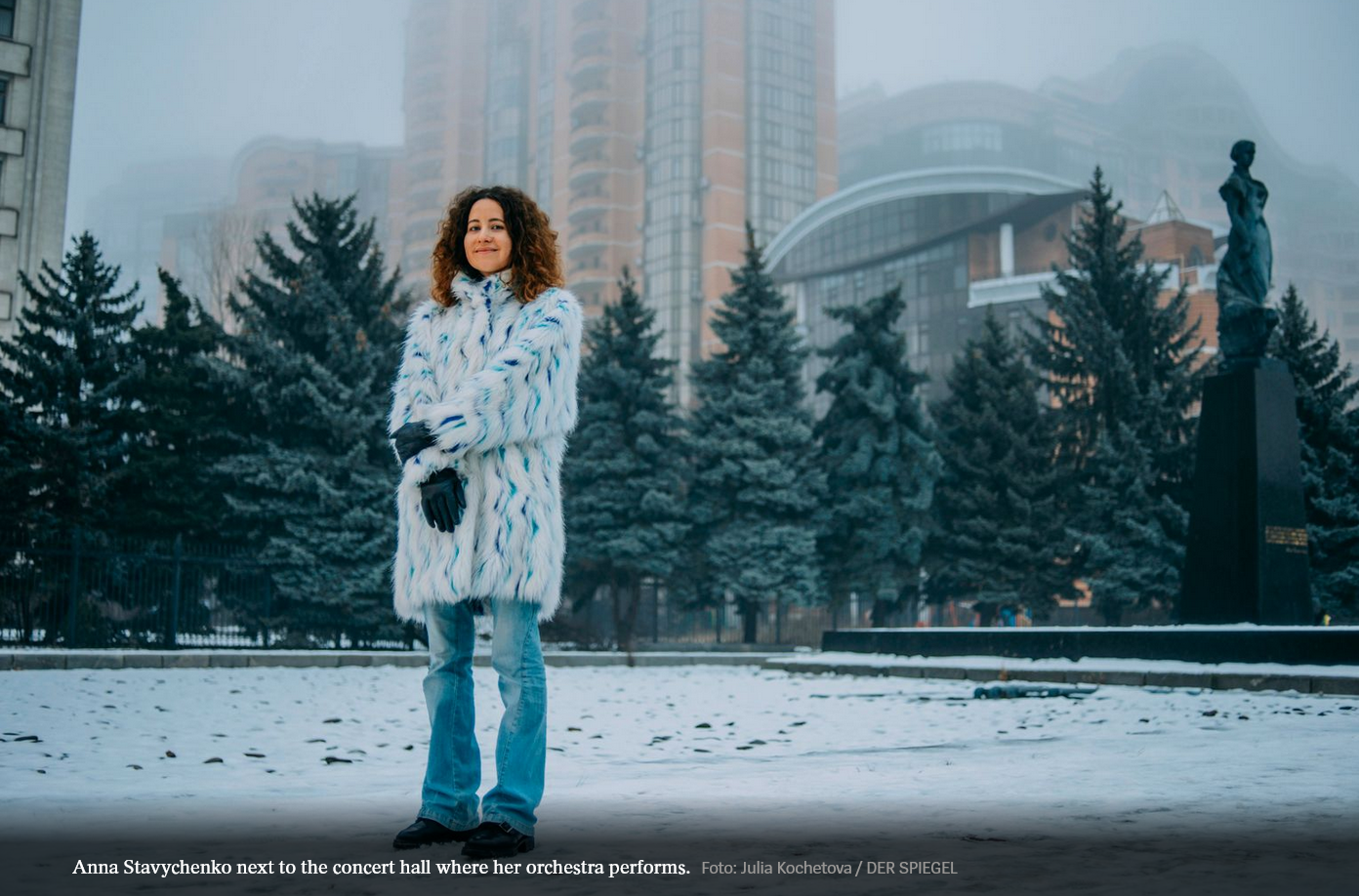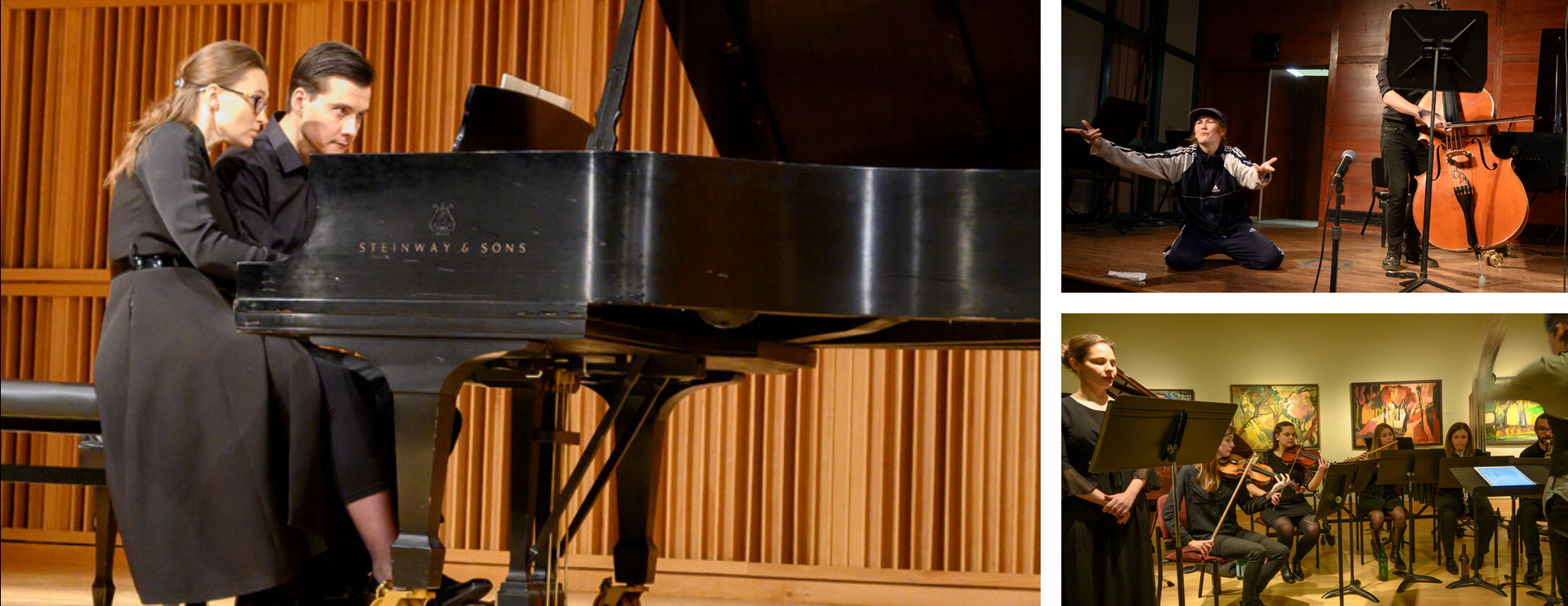
In anticipation of the 2022 Ukrainian Contemporary Music Festival which takes place Friday, March 18th to Sunday March 20th, and is now in its third year, organizer and creative director Leah Batstone offers an update on Ukraine’s musical landscape since the inaugural Ukrainian Contemporary Music Festival in 2020.
Since my blog post regarding research in Kyiv on Ukrainian music “Constructing a National Canon: Ukraine’s Musical Landscape after the Revolution of Dignity,” a lot has happened. Up until one week ago, those things included the frustrations and limitations of Covid, but also a number of fantastically important musical events.
Since March of 2020, Opera Aperta, the opera “laboratory” of composing duo Roman Grygoriv and Illia Razumeiko have produced two new, fabulous operas: Chornobyldorf and Opera Lingua. The former was named one of the year’s six best operas by Music Theatre Now.
The online music website, The Claquers, celebrated 30 years of renewed Ukrainian independence with a two-part comprehensive list of the most important Ukrainian art music compositions of the past thirty years.

In September of 2021, under the artistic direction of Liubov Morozova, the Kyiv Symphony Orchestra performed Tristan und Isolde for the first time in an independent Ukraine. The ensemble then took the performance on the road to the Musikfestspiele Königswinkel, a magical setting in Bavaria.

The ensemble has also appointed Anna Stavychenko director, a woman whose passion for Ukrainian music is matched only by her tenacity. In recent months, as Russia’s threatening presence grew, she has been outspoken about the need to live life in the face of tyranny.

Alla Zahaykevych premiered an electro-acoustic opera Vyshvanyy. Korol’ Ukrainy [Vyshyvanyy. King of Ukraine] in Kharkiv. Setting a libretto by Ukrainian poet Serhiy Zhadan, the opera explores the story of Wilhelm van Habsburg, or Vasyl Vyshyvanyy as he is known in Ukraine, an Austrian prince who fought for Ukrainian independence and died as a consequence of torture by the KGB.
Cultural managers Ivan Ostapovych and Taras Demko, in cooperation with Swedish and German artists, put together the concert series Forbidden Music in Lviv. The concerts, organized into the categories of Forbidden, Illegal, and Harmful Music, featured works of Ukrainian, German, and Austrian composers subjected to extreme oppression and violence.
This list only begins to scratch the surface of the on-going musical creativity coming out of Ukraine prior to February of 2022. On the 24th of last month, however, Russia launched a full-scale invasion of Ukraine, an invasion justified in part by the lie that Ukrainian has no culture of its own.
The evidence opposing this claim is ample and easy to find. What is more, it is invigorating and deserves experiencing. I implore anyone with an interest in music, history, or just the resiliency of the human spirit to explore works by Ukrainian composers. For those in the greater New York City area, the Ukrainian Contemporary Music Festival will provide exactly such an opportunity later this month.
Now in its third year, the 2022 festival offers three days of concerts organized about contemporary Ukrainian compositional interactions with the themes of nature, from the idyllic to the apocalyptic.
–Leah Batstone
